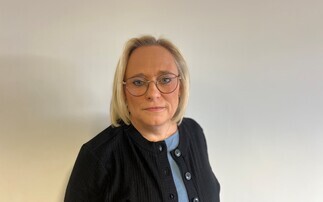
Protection and wellbeing experts discussed the growing importance of incorporating holistic wellbeing support into the protection proposition during a recent COVER webinar, in association with Royal London.
It is referred to as the ‘most depressing day of the year' and for some Blue Monday will represent a particularly tough time when it comes to their mental, physical and financial wellbeing. With New Year's resolutions, such as dry January, getting more exercise or Veganuary placing greater stress on daily lives, January is also a time of considerable financial worry for many.
During the recent Blue Monday & Beyond: The Whole Wellbeing Proposition webinar, hosted by COVER in association with Royal London, a panel of industry experts discussed how the protection sector can better support clients through new products and support services.
Kathryn Knowles, managing director at Cura Financial Services, offered an adviser's perspective on how effective wellbeing pathways and the role of an advisor as an informer, rather than a prescriber, of wellbeing issues.
"It's incredibly important that advisors don't unintentionally fall into a councillor role when they are speaking to people," she explained.
"Ultimately, we can be very knowledgeable in terms of different health conditions and how to approach conversations, but we do need to make sure that there is that divide as we are not medically trained."
Explaining how Royal London's recent Helping Hand wellbeing services was designed to make a difference, Christina Rigby, product owner at Royal London, said that the insurer's partnership with Thrive aims to give customers access to support at the "earliest stage possible".
"What we wanted to do was to enable customers to understand where their health was at and how well they were doing. We wanted to partner with someone who could give a strong health assessment which was easy to complete and could quickly give them an idea of the area they needed to focus on," Rigby said.
Simon Jay, chief commercial officer at Thrive, which provides a mental health app, reiterated that the group offers "highly accessible support" and that its partnership with Royal London will allow the company the opportunity to not only expand its reach but to share its wellbeing values and support with clients faster.
"Wellbeing is not one size fits all, it's a pathway, there needs to be a service that supports the user throughout. This is where Thrive works, its within that prevention space, where we can educate people right from the education stage to the mindfulness content," he said.
An important point raised during the discussion was the importance of insurers using medically accredited services when offering additional levels of support to customers. For Rigby, this was "absolutely vital" and one of the key aspects that the group was focusing on when developing its proposition.
"There are hundreds of apps out there and start-ups within the wellbeing area, all with good intentions but what we wanted to make sure that for our customers we had selected partners that could evidence the fact that they were experts in that area," she explained.
"Royal London as a financial services company, are not experts in mental health, but we can use the skills that we have to undertake good due diligence to make sure that the companies we work with have got that medical evidence."
Importance of data
In addition to finding accredited partners, Rigby stated that one of the key factors was whether they could provide data-based evidence that their intervention works: "At the end of the day, we want to show value for money and that these services work and that customers are getting something from day one," she commented.
Speaking from a quantifiable perspective in terms of collecting mental health data, Jay explained that Thrive uses the NHS scales that have been developed by the National Institute for Health and Care Excellence (NICE). He said that the scale which consists of 16 questions aims to help organisations understand and better diagnose at an initial level.
"That is the main point; quantifying the data based on the individual need of the user and providing the right pathway for them is where the real value comes from," he noted.
However, while the protection space recognises that having support systems in place is a step in the right direction, if companies are unable to educate clients on the beneficial reasons behind them, they risk becoming redundant.
Knowles candidly suggested that one of the best ways to engage with clients about support add-ons is to inform people about the "value-added extras" from the very beginning, with the help of data. She explained that, overall, a mindset and cultural change is required for an organisation to see the benefits of wellbeing services.
However, Knowles also said that in some cases it can be difficult to get people who have benefited from the services to come forward and share their success story, which in turn can be used to grow awareness within the sector.
"It feels incredibly awkward to do something like that and from an advisor point of view, it feels insincere and almost as if you're taking some form of commercial benefit from somebody not having a positive situation," she explained.
Rigby, who agreed with Knowles' sentiment on stories, added that this was why Royal London chose to focus on data rather than individual accounts. Meanwhile Jay concluded that it would be a "very self-serving thing to ask for a testimonial on services."











